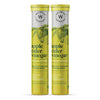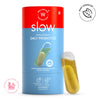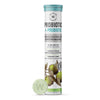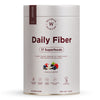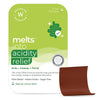We’ve all felt it—that sharp, fiery discomfort in the upper abdomen or lower chest that creeps up when you least expect it. Whether it’s post a heavy meal, after one too many cups of coffee, or during a stressful workday, burning in stomach is a sign your digestive system is calling for help.
The good news? You don’t need to rely solely on medication. With the right natural remedies and daily practices, you can manage and even prevent that unsettling sensation. In this guide, we break down the most effective home remedies for stomach burning, along with lifestyle and dietary tips that can make a real difference.
What Causes a Burning Sensation in the Stomach?
Understanding the causes of burning stomach is the first step in finding lasting relief. Some of the most common culprits include:
1. Acid Reflux or GERD
One of the most frequent causes, acid reflux happens when stomach acid flows backward into the esophagus. This not only causes a burning sensation in the stomach, but also chest discomfort, bloating, and burping.
2. Spicy, Oily, or Acidic Foods
These types of foods can irritate the stomach lining and trigger excess acid production, especially when consumed frequently or in large quantities.
3. Overeating or Eating Too Fast
Rushed or large meals can overburden your digestive system, causing indigestion and acid buildup.
4. High Stress Levels
The gut-brain axis is real. Chronic stress or anxiety can slow digestion, increase acid secretion, and aggravate symptoms of burning stomach.
5. Low Fiber Intake
A diet low in fiber slows down digestion, leading to constipation, gas, and burning in the stomach over time.
6. Infections or Ulcers
H. pylori infection or ulcers in the stomach lining may also cause persistent burning sensations and require medical attention.
Easy and Effective Home Remedies
Here are 15 soothing, natural, and effective stomach burning home remedies you can turn to—straight from your kitchen and pantry.
1. Cold Milk
A glass of cold, unsweetened milk works as a natural antacid. It helps neutralize excess stomach acid and offers quick relief from that burning sensation in the stomach. Calcium also strengthens the stomach’s protective lining. Sip it slowly for the best effect.
2. Coconut Water
Coconut water is naturally alkaline and packed with bioactive enzymes. It helps flush out toxins, promotes digestion, and instantly cools the gut. Sipping it regularly may help reduce the frequency of acidity attacks and soothe irritated stomach lining.
3. Fennel Seeds (Saunf)
Fennel is a traditional digestive aid with antispasmodic properties. Chewing a teaspoon after meals or steeping it into tea can reduce gas, bloating, and acidity. It also helps relax the GI muscles, easing the overall discomfort of a burning in the stomach.
4. Ginger Tea
Ginger stimulates digestive enzymes, reduces inflammation, and calms the stomach. A warm cup of ginger tea before or after meals can prevent acid buildup and ease nausea. It's one of the most reliable home remedies for stomach burning.
5. Aloe Vera Juice
Known for its healing properties, aloe vera soothes the digestive tract and reduces inflammation. When consumed in small, diluted amounts, it can ease acidity, support gut health, and reduce the burning sensation in the stomach over time.
6. Bananas
Bananas are alkaline and rich in pectin, a soluble fiber that helps protect the stomach lining. Eating a ripe banana between meals can neutralize acid and reduce irritation. It’s a gentle, effective option when looking for remedies for burning stomach.
7. Buttermilk with Rock Salt and Jeera
This probiotic-rich drink cools the stomach, balances pH levels, and encourages the growth of good gut bacteria. Add a pinch of roasted cumin powder and rock salt for flavor and digestive support. It’s refreshing and soothing all at once.
8. Chamomile Tea
Chamomile tea has mild sedative and anti-inflammatory properties that relax the digestive tract. It can reduce bloating, indigestion, and the discomfort caused by excess stomach acid. A cup before bedtime may also improve sleep and gut balance.
9. Cumin (Jeera) Water
Cumin water enhances digestion by boosting the secretion of digestive enzymes. It’s effective in relieving gas, acidity, and discomfort associated with a burning stomach. Drink it on an empty stomach for best results.
10. Mint Leaves
Mint has a natural cooling effect that eases the gut and reduces acid reflux. Chewing fresh mint leaves or drinking mint tea improves bile flow, which helps in digestion and reduces the burning in stomach after meals.
11. Apple Cider Vinegar (ACV)
Though acidic in nature, diluted ACV can help balance stomach pH when consumed in small quantities before meals. It supports healthy digestion and may prevent acid reflux. Always use organic, raw ACV with the “mother” for full benefits.
12. Turmeric Milk (Golden Milk)
Turmeric is rich in curcumin, which has anti-inflammatory and gut-soothing effects. When mixed with warm milk and a pinch of black pepper, it helps reduce acid irritation. Sip it at night to calm the gut and support overnight repair.
13. Amla Juice (Indian Gooseberry)
Amla is an excellent source of Vitamin C and antioxidants that help repair the stomach lining. Its alkaline nature helps control acid secretion and supports digestion. A small shot of fresh amla juice in the morning can work wonders.
14. Cloves
Cloves promote saliva production, which in turn helps neutralize stomach acid naturally. Chewing 1–2 cloves or steeping them into warm water before meals can aid digestion and reduce acidity symptoms. They also help relieve nausea and gas.
15. Licorice Root Tea
Licorice helps increase the mucus lining in the stomach, creating a natural barrier against acid. A mild tea made from dried licorice root can soothe inflammation and reduce discomfort. Avoid overuse if you have high blood pressure or kidney issues.
Smart Dietary Adjustments to Prevent Stomach Burning
What you eat—and how you eat—can have a powerful impact on your digestive health. Thoughtful, consistent choices can go a long way in preventing that uncomfortable burning sensation in the stomach.
Go for smaller, more frequent meals.
Large meals can overwhelm your digestive system and increase acid production. Eating smaller portions more often keeps things balanced and easier on your stomach.
Steer clear of common trigger foods.
Caffeine, carbonated drinks, spicy foods, tomatoes, and citrus fruits can irritate the stomach lining and trigger acid reflux. Listen to your body and avoid what doesn't sit well.
Prioritize fiber-rich, whole foods.
Incorporate oats, apples, flaxseeds, chia, and leafy greens into your daily diet to support regular digestion and reduce acidity by improving gut motility.
Include naturally fermented foods.
Yogurt, kefir, sauerkraut, and kimchi are rich in probiotics, which help balance gut bacteria and reduce the likelihood of acid buildup.
Lifestyle Changes That Help
While diet plays a key role, your everyday habits are just as important when it comes to easing and preventing that burning in the stomach. A few intentional shifts can create lasting digestive comfort.
Don’t lie down immediately after meals.
Give your body the time it needs to digest—wait at least 2–3 hours before reclining or heading to bed to help prevent acid reflux.
Eat mindfully.
Slow down. Chew thoroughly. Savor every bite. Mindful eating reduces overeating, supports digestion, and minimizes stomach discomfort.
Support your nervous system.
Stress can directly impact gut health. Carve out time daily for calming practices like yoga, deep breathing, walking in nature, or journaling.
Stay consistently hydrated.
Drinking enough water throughout the day helps dilute stomach acid and keeps digestion flowing smoothly.
Prioritize restorative sleep.
Sleep and gut health are deeply connected. Aim for 7–9 hours of quality sleep to give your body time to heal and reset.
Supplements That Support Gut Health—The Wellbeing Nutrition Way
When thoughtfully sourced natural ingredients are paired with smart science, they become more than just remedies, they become daily essentials for long-term gut wellness. If you’re looking to go beyond these quick, stomach-burning home remedies, these advanced, plant-powered supplements offer targeted support for your digestive system:
Acidity Relief Melts®
Fast, clean, and discreet. These oral strips dissolve on your tongue and deliver a synergistic blend of Amla, Licorice, Mint, and Clove—known to calm acidity, reduce gas, and ease discomfort from indigestion. Perfect for those who need quick relief on the go.
Melts® Healthy Gut
This melt-in-your-mouth strip combines gut-friendly probiotics and digestive enzymes for daily gut balance. It’s a gentle formula that supports smoother digestion, reduces bloating, and helps maintain the integrity of your microbiome.
Slow Probiotic Capsules
These time-controlled capsules are designed for deep gut impact. Each one delivers 14 clinically studied strains, released gradually over 8 hours to survive your stomach acid and reach the intestines, where it matters most.
Probiotic + Prebiotic Effervescent Tablets
Fizz your way to better digestion. These refreshing tablets are packed with live cultures and prebiotic fibers that work together to relieve gas, acidity, and bloating, while supporting nutrient absorption and gut motility.
Apple Cider Vinegar Effervescent Tablets
A flavorful, non-acidic twist on a classic remedy. These tablets offer the benefits of raw, unfiltered Apple Cider Vinegar, paired with Garcinia Cambogia and antioxidant-rich Pomegranate to support digestion, appetite regulation, and natural detox—without the harsh vinegar taste.
When Should You See a Doctor?
While these stomach-burning home remedies work well for most, there are times when professional help is essential. Seek medical advice if:
-
You experience persistent or severe pain.
-
There’s unintentional weight loss.
-
You notice blood in vomit or stools.
-
Over-the-counter treatments and home remedies don’t offer relief.
Final Thoughts
Stomach burning may feel intense, but it doesn’t have to take over your life. With the right knowledge, supportive foods, easy home remedies, and clean, effective supplements, you can reclaim your digestive comfort—naturally and effortlessly.
So the next time your stomach sends up a distress signal, you’ll know just what to do: pause, choose one of these stomach burning home remedies, and breathe. Relief is closer than you think.
FAQs
1. Why does my stomach feel like it’s burning?
A burning feeling in the stomach is often caused by acid reflux, overeating, spicy or acidic foods, or stress. It may also result from low fiber intake, digestive infections, or ulcers irritating the stomach lining.
2. How quickly can home remedies soothe a burning stomach?
Most home remedies like cold milk, fennel seeds, or ginger tea can provide relief within 15–30 minutes, though consistent use and lifestyle changes offer more lasting comfort over time.
3. Can stress actually trigger a burning sensation in the stomach?
Yes, stress can disrupt digestion and increase acid production due to the gut-brain connection, often leading to symptoms like burning, bloating, and discomfort.
4. Is milk a good remedy for stomach burning?
Cold, unsweetened milk can help neutralize stomach acid and soothe the burning sensation quickly thanks to its calcium content and natural antacid properties.
5. Which foods should I avoid when I have a burning stomach?
It’s best to steer clear of spicy, fried, oily foods, citrus fruits, tomatoes, carbonated drinks, and caffeine, as these can trigger acid reflux and irritate the stomach lining.
6. Could a burning stomach be a sign of a serious issue?
Yes, if symptoms persist or are accompanied by weight loss, vomiting blood, or blood in stools, it could indicate ulcers or other conditions that need medical attention.
7. Do probiotics help reduce acidity and stomach burning?
Probiotics support gut health by balancing bacteria, which can help ease digestion, reduce acid buildup, and prevent recurring stomach burning when taken regularly.
8. How are acidity, indigestion, and stomach burning different?
Acidity refers to excess stomach acid, indigestion is general digestive discomfort, and stomach burning is a symptom often caused by either, especially due to acid reflux.
9. Is it safe to use antacids regularly for burning stomach?
While antacids offer quick relief, regular use may mask underlying issues. It’s better to combine occasional antacid use (only if necessary) with long-term natural and dietary approaches.
10. Can your sleeping position affect stomach burning or acid reflux?
Yes, lying down right after meals or sleeping flat can worsen acid reflux. Elevating your head and sleeping on your left side can help reduce burning sensations.








